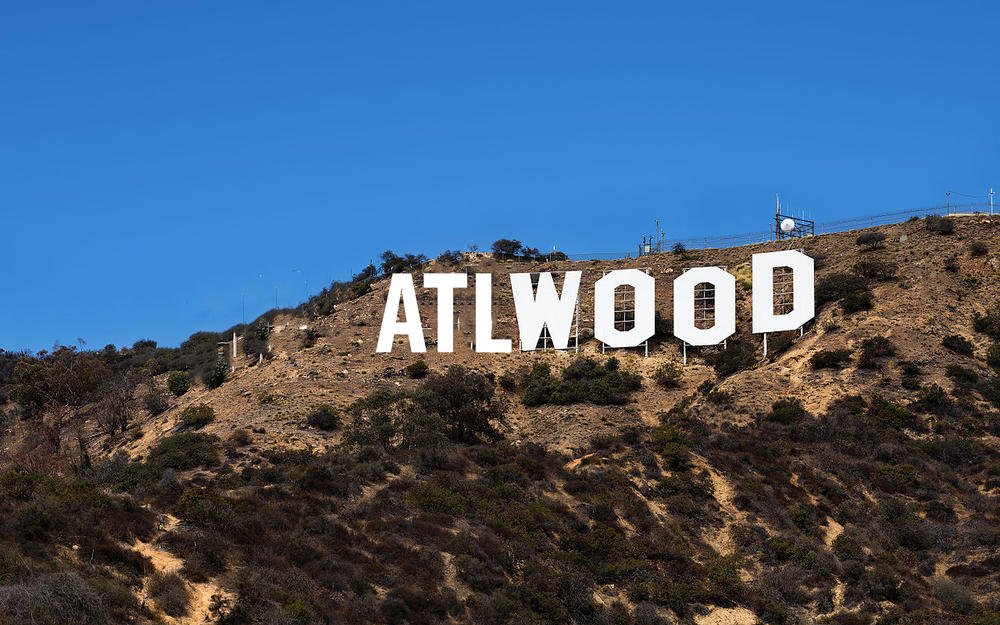What Is The Future Of Post-Production in Atlanta?
Ever sit through the credits of a movie and notice the big peach at the end of the credits? That’s the Georgia Film Tax Incentives at work. If a production was filmed in Georgia, and spent at least $500k here, they can get up to 30% off their taxes. That’s a lot of money, and there’s no cap! As a result, many studios have opened up shop in the Atlanta area, including Tyler Perry, Pinewood, and Blackhall. Recently, it was announced that Lionsgate will be joining them with a new 40 acre lot studio. But what about the post-production side of the coin?
Image by David Mark from Pixabay
The film production industry in Atlanta has been growing at a rapid pace since the Georgia Film Tax Incentives were implemented in 2008, earning the city the nickname the "Hollywood of the South". Locally, residents often refer to it as "ATLwood". The tax incentives have been instrumental in transforming the state into a major hub for film and television production. They’ve been renewed and expanded several times since their introduction, and they continue to play a crucial role in attracting film and television productions to Georgia. In fact, in 2021-2022, the industry produced a staggering $4.4B in Atlanta alone, with at least 69 shows currently being filmed in the area. Nice. With the upcoming opening of the new Lionsgate studio, the demand for post-production services in Atlanta is set to increase even further.
In January 2023, the post-production tax incentive in Georgia expired. However, from my understanding, the latest iteration of the production bill has incorporated parts of the post-production bill into it. While this does exclude a lot of productions right now, investments like Lionsgate’s new studio is exactly what we need to expand the post-production industry here in Atlanta. How does this help post-production? Simple. Companies can earn a 20% tax credit for post-production work done on productions filmed in Georgia. This credit applies to expenditures for Georgia-filmed movies and TV projects, including editing and color correction, as long as they are done by a Georgia vendor. In other words, what happens in Georgia stays in Georgia. Until it hits theaters.
By the end of this year, Lionsgate's new state-of-the-art production complex in Atlanta is poised to open and is set to have a significant impact on the local production and post-production industries. With 12 sound stages and a $200M investment, the studio is set to attract a considerable amount of film and television production to the area, which will, in turn, generate more post-production work. Not to mention supplemental industries. After all, people need places to stay, food to eat, workers to build sets, electricians to set up power, and so on.
It's important to note that these tax incentives have already played a significant role in attracting film and television productions, as well as supplemental industries, to Georgia, and the demand for post-production services has followed suit. There are dozens of post-production studios in the area already, including Moonshine, Bolt, Fugo, and A-Z studios like ECG Productions. With the new Lionsgate studio and the continued popularity of Georgia's film tax incentives, there is a lot of potential for more growth in and around Atlanta for post-production.
Image by meineresterampe from Pixabay
Additionally, the trend of remote working has opened up new opportunities for post-production artists. Although primarily post-production project do not qualify for the tax incentives, with the introduction of yet another major studio to the area, coupled with the updated post-production incentive rules, there is more incentive than ever for studios to keep production and post-production work local in Georgia. This is particularly advantageous for the Atlanta market, as the cost of living is lower here, making it an attractive option for artists who may be looking to relocate.
If studios start to rely on post-production houses in Atlanta for their Georgia produced films, it wouldn’t be that hard for them to take advantage of those studios for other projects as well since the people are already there. Many artists have already moved away from expensive areas like LA to save money on living costs thanks to remote work. Georgia is in a good position to tap into that right now.
Overall, the future of post-production work in Atlanta looks promising, with the combination of the new studios, continued incentives, and the flexibility of remote work creating new opportunities for artists and vendors alike. With the Lionsgate studio and Georgia's film tax break paving the way, it's clear that the post-production industry in Atlanta is ready for its close-up!




